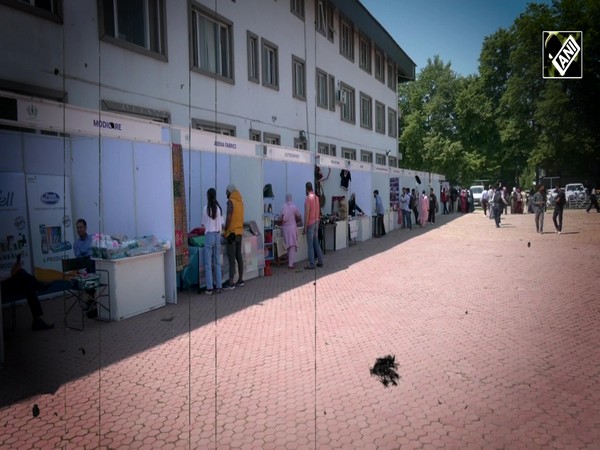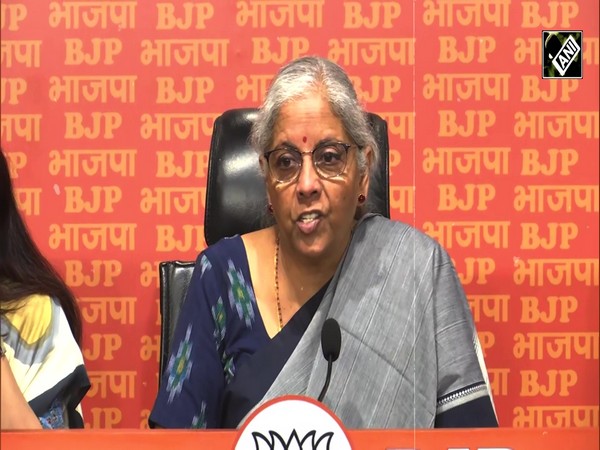Web portals, video conferencing have become norm: Delhi HC allows marriage registration virtually
Sep 11, 2021

New Delhi [India], September 11 : The Delhi High Court has backed virtual appearance for marriage registration and remarked that web portals and video conferencing have become almost the norm.
Justice Rekha Palli said: "In a little over half a decade since the Registration Order was notified, the universe has undergone a sea change but the Registering Authority while exercising its power and jurisdiction under the Registration Order is refusing to recognize the reality that with the technology as is available today, web portals and video conferencing have become almost the norm."
"In fact, if not for the acceptance of video conferencing as the norm, this Court and the judicial system in this country would have come to a grinding halt, and would not have been able to function at a time, when there was the greatest need for the citizens of this country to have access to justice. These aspects appear to have been simply overlooked by the Registering Authority, who's continuing to insist on that the parties must remain present physically before him," the court said.
"I am of the view that, in times such as these, when technology has proven to be the bridge that ensured uninterrupted communication, widespread dissemination of information in the public interest and the smooth functioning of society, the Court cannot allow a rigid interpretation of the statute to prevent citizens from exercising their rights," the court said.
The Delhi High Court has remarked that the insistence of physical appearance even when their personal appearance can be easily secured through video conferencing, will definitely make it more cumbersome for parties to come forward for registration of marriages.
Justice Rekha Palli said: "I cannot also overlook the fact that The Delhi (Compulsory Registration of Marriage) Order, 2014 is welfare legislation, promulgated at the instance the Supreme Court to encourage registration of marriages."
There is no gainsaying that welfare or beneficial legislation must be interpreted in such a manner so as to ensure that the object for which the statute was effectuated is fulfilled and that there are no unnecessary obstacles to the beneficiaries obtaining the benefits of the same, the court opined and added: "Keeping in view the fact that the issuance of the registration order is to promote the registration of marriages, I am of the considered view that Clause 4 must be interpreted in such a manner that encourages parties to easily get their marriages registered."
"The insistence of physical appearance even when their personal appearance can be easily secured through video conferencing will definitely make it more cumbersome for parties to come forward for registration of marriages. This will negate the very purpose of enactment of the Registration Order and cannot be permitted," said the Delhi High Court.
The court said that it has no hesitation in coming to the conclusion that the term 'personal appearance' in Clause 4 of the Registration Order has to be read to include presence secured through Video Conferencing and any other interpretation, would not only frustrate the very purpose of this beneficial legislation but, it would also undermine the use of this important and easily accessible tool of Video Conferencing.
"The same would also be against the ratio of the decision of the Supreme Court in Praful B Desai (Supra) in which the Court while observing that Video Conferencing permits one to see, hear and talk with someone far away with the same ease as if he/she is physically present, had allowed the recording of evidence in a criminal trial through Video Conferencing," the court said.
With these reasons, the Delhi High Court has allowed the plea of Indian couples residing in the United States of America (USA), seeking a direction to the concerned Sub-Divisional Magistrate (SDM) to register their marriage in accordance with the provisions of the Delhi (Compulsory Registration of Marriage) Order, 2014 without insisting on their physical appearance before him.
The court directed that the parties seeking registration of their marriage under the Registration Order, will be entitled to submit a physical copy of their application through their attorney and also enter a personal appearance, as and when required, through Video Conferencing, which application would be duly processed by the registering authority, subject to submission of duly notarized copies of all relevant documents before the authority physically and fulfilling all other procedural requirements.
Besides this, the court also granted permission to the petitioner to submit their application for registration of marriage, through their counsel/Power of Attorney Holder in physical form before the SDM along with copies of all supporting documents duly notarized, either by the notary public in US, where they are presently residing or by the notary public in Delhi.
"The respondent will allow the "personal appearance" of the Petitioners for the purpose of Clause 4 (d) and (e) and Form A of The Delhi (Compulsory Registration of Marriage), 2014 through Video Conferencing," the court said.
The court also directed that that two witnesses, as required under the Registration Order will appear physically before the Registering Authority along with their original ID proofs, on the date as notified by the authority.
The court directed the respondent to expeditiously register the petitioners' marriage, and issue the Marriage Registration Certificate within a period of two weeks from the date of receipt of the application made by the petitioners.
The court was hearing a plea filed by a couple seeking registration of their marriage through video conferencing mode.
The couple, who currently reside in the US and got married in 2012, has sought directions to the Delhi government to allow online application for registration of marriage under the Delhi (Compulsory Registration of Marriage) Order, 2014 and grant them permission to appear virtually before the concerned authority for registration purpose.
The state government had told the Delhi High Court that registration of marriage cannot be conducted through video conferencing as it is mandatory for couples to appear before the concerned authority personally.
The court said that the respondents' plea that the physical presence of the parties is necessary to ascertain whether they are of sound mind and are entering into marriage without any fear or coercion, overlooks the fact that the task assigned to the Registering Authority under the Registration Order is to register a marriage which has already been solemnized. The respondent appears to be acting under the misconception that a marriage is being solemnized before the Registering Authority, the court said.


















